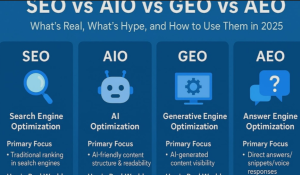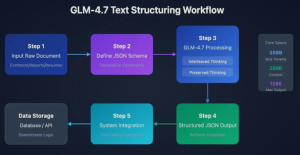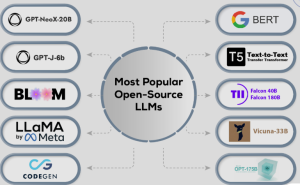Key Takeaways
- A smartphone is a reactive tool that requires you to initiate every task; an AI Agent Phone is a proactive assistant that acts on your behalf.
- The core difference lies in their AI: a smartphone's AI enhances user experience, while an AI Agent Phone's AI is the primary point of action for delegation.
- An AI Agent Phone can handle complex, multi-step projects, freeing up your time and cognitive energy for strategic work.
- Ultimately, the decision comes down to what you need: a powerful tool or an intelligent partner.
Defining the Players: Smart Phone vs. AI Agent Phone
To understand the difference, let's first define each device's core purpose. A smartphone, like the latest iPhone or Samsung Galaxy, is the pinnacle of a reactive tool. It's a versatile, all-in-one device that performs tasks with great efficiency—but only after you give a command. Its AI, such as a voice assistant or camera optimizer, exists to enhance a specific feature.
An AI Agent Phone, on the other hand, represents a new mobile paradigm. It is a mobile device where the AI is not just a feature; it's the core. This AI serves as a proactive, autonomous agent, capable of not only understanding commands but also anticipating your needs and executing complex, multi-step actions on its own.
The Core Difference: Reactive vs. Proactive AI
The most significant distinction between these two mobile categories is their approach to artificial intelligence.
- The Smart Phone: A Reactive Tool. When you use a smartphone's AI, you must provide a direct, explicit command. For instance, you say, “Hey Siri, set a reminder for 3 PM.” The AI reacts to this single instruction and completes the task. You are the driver, and the phone's AI is a powerful navigator that follows your directions.
- The AI Agent Phone: A Proactive Assistant. An AI Agent Phone is different. Its AI is designed for proactive autonomy. Instead of just following orders, it can understand a high-level request like, “Plan my business trip to Tokyo next week.” The AI agent then breaks down this complex command into multiple tasks—booking flights, reserving a hotel, and scheduling transportation—and performs them on your behalf. The phone works for you, managing tasks so you can focus on bigger things.
Real-World Scenarios: A Tale of Two Devices
To truly grasp the difference, consider how each phone handles real-world challenges.
- Commercial Scenario (Meeting Prep):
- With a Smart Phone: A busy executive gets an email about a last-minute meeting. They manually open their calendar, search for a time, and then open another app to draft an email to the team, and a third app to find the latest sales report.
- With an AI Agent Phone: The executive simply says, “Schedule a meeting with the team, send them the latest sales report, and prepare a summary for me.” The AI Agent Phone's AI identifies the team members, finds an open time, automatically pulls the relevant data, and drafts the email and summary, all without further input.
- Personal Scenario (Travel Planning):
- With a Smart Phone: You have to plan a vacation. You spend hours searching for flights, hotels, and attractions across multiple apps and websites.
- With an AI Agent Phone: You just say, “Plan a 7-day trip to Paris, including flight, hotel, and an itinerary.” The AI agent handles all the searching, booking, and planning, presenting you with a complete travel package for approval.
Comparison Table: Smart Phone vs. AI Agent Phone
| Feature | Standard Smart Phone | AI Agent Phone |
| Core Purpose | Reactive tool for app usage | Proactive, autonomous assistant |
| AI Paradigm | Task enhancement | Task delegation |
| Task Complexity | Single-step commands | Complex, multi-step projects |
| Autonomy Level | Low (requires constant input) | High (acts on your behalf) |
| Primary Use | Communication, entertainment, web browsing | Delegation, management, and automation |
Who is an AI Agent Phone For?
An AI Agent Phone isn't for everyone. It's a strategic device designed for individuals whose time is a premium. The recommended users are:
- Business Leaders & Executives: Who need to offload administrative burdens to focus on high-stakes decisions and business growth.
- Entrepreneurs: Who wear multiple hats and need a tool to handle a wide range of tasks, from marketing to administration.
- Security-Conscious Professionals: Who require a device that offers both high-end technology and advanced privacy features.
- Tech-Forward Individuals: Who are eager to experience the next generation of mobile technology and want a device that truly redefines what a phone can do.
Frequently Asked Questions (FAQs)
Q: Is an AI Agent Phone just a smartphone with a better voice assistant? A: No. While they both have voice assistants, the core difference is the AI's purpose. A smartphone's AI is an assistant that helps you, but an AI Agent Phone's AI is an agent that works for you, autonomously handling complex tasks.
Q: Does an AI Agent Phone replace my computer? A: Not entirely. An AI Agent Phone is designed to manage and automate many of your digital tasks, but it's a mobile device. It's a powerful companion that can reduce your reliance on a computer for many administrative and communication tasks.
Q: Is the AI always on and listening? A: The AI's proactive nature is managed through specific permissions and settings. It acts on your behalf but requires your initial commands and approvals, so you always maintain control over its actions.









